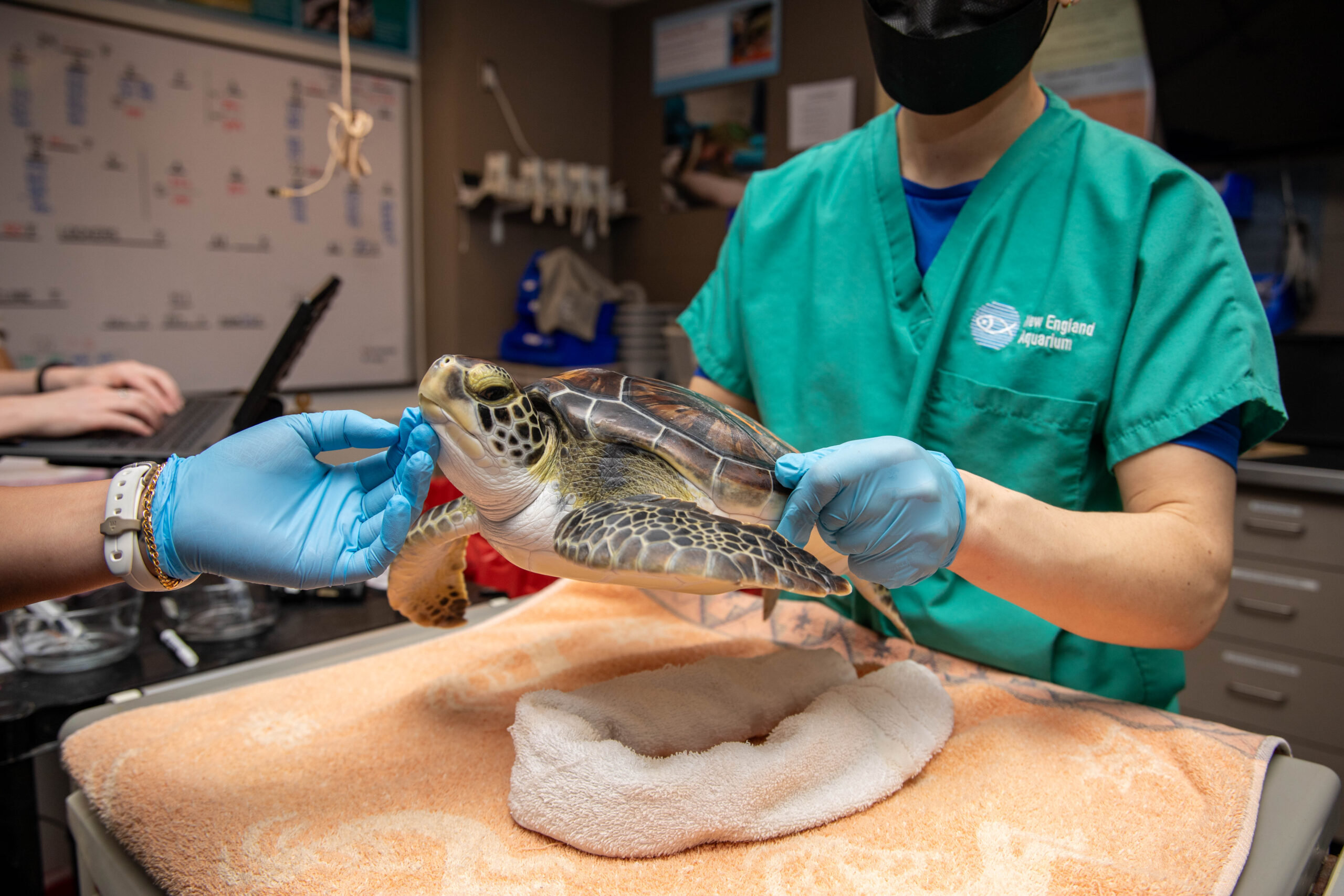
BOSTON, MASS. (Feb. 14, 2025) – Months after stranding on the beaches of Cape Cod, dozens of sea turtles recovering at the New England Aquarium have received Greek mythology-themed names as their rehabilitation continues.
**PHOTOS AND VIDEO AVAILABLE HERE WITH CREDIT TO NEW ENGLAND AQUARIUM**
The annual sea turtle cold-stunning season came to a close in early January, with the Aquarium’s Sea Turtle Hospital in Quincy, MA, treating more than 500 live turtles that washed onto beaches along Cape Cod Bay beginning in November. While many stabilized turtles were transferred to secondary rehabilitation facilities to free up space for new arrivals, 71 of the more critical turtles remain at the Sea Turtle Hospital to continue to undergo treatment for life-threatening medical conditions.
Aquarium staff, volunteers, and interns have a tradition of naming the turtles receiving long-term care, with this year’s theme being Greek mythology. The group includes a green sea turtle with a particularly striking shell named “Aphrodite” after the goddess of love and beauty; critically endangered Kemp’s ridleys “Hercules” and “Pegasus”; along with loggerheads “Athena” and “Boreas,” the Greek god of the cold north wind.
“Naming these sea turtles helps our dedicated team connect with each patient as we transition into long-term care and create individualized treatment plans for every rescued turtle,” said Adam Kennedy, Director of Rescue and Rehabilitation at the New England Aquarium.
The turtles are expected to spend several months undergoing treatment for conditions including pneumonia, malnutrition, traumatic injury, and dehydration, a result of becoming unable to regulate their body temperatures in the cold waters of Cape Cod Bay. This year, there are many turtles with confirmed bacterial sepsis and bone infections caused by weakened immune systems and poor circulation due to hypothermia.
“At the New England Aquarium, we’re able to provide our critical, longer-term patients with more specific medical care thanks to advanced diagnostic testing,” said Dr. Melissa Joblon, the Aquarium’s Director of Animal Health. “Several turtles that have had CT scans or advanced lab tests such as cultures are scheduled for joint debridement surgery, which treats infection by removing dead or diseased bone tissue.”
Every fall and early winter, hundreds of cold-stunned sea turtles—the majority critically endangered Kemp’s ridleys—wash up on the beaches of Cape Cod. Because of rapidly changing water temperatures and wind patterns, many turtles cannot escape the hook-like area of Cape Cod Bay before becoming hypothermic. That’s when staff and volunteers with Mass Audubon’s Wellfleet Bay Wildlife Sanctuary come in, patrolling the beaches for stranded turtles and transporting the live animals to the Aquarium’s facility for triage and treatment.
The Aquarium plans to release the majority of its rehabilitated sea turtles off Cape Cod into Nantucket Sound once the water temperature is warm enough this summer. Turtles that are fully rehabilitated sooner may be transported further south for release in the springtime. Recently, 10 sea turtles returned to the ocean waters off Florida’s Canaveral National Seashore.
MEDIA CONTACT: Pam Bechtold Snyder—617-686-5068; psnyder@neaq.org
